
In May 2024, Dr Kateryna Ihnatenko delivered a webinar entitled ‘Effective Pathways to Reach and Self-Adaptation Practices Among Ukrainian Refugees: A Case Study of Georgia and Canada’, which was organized by Oseredok Ukrainian Cultural and Educational Centre (Winnipeg, Canada) for all interested persons. Dr Ihnatenko is an associate professor at the Department of Social Work and a lecturer at Luhansk Taras Shevchenko National University. She is also a researcher at Ilia State University in Tbilisi, Georgia, and a fellow of the Marie Sklodowska-Curie Foundation’s MSCA4Ukraine program.
The lecture explored practical strategies for survival, integration, and adaptation among Ukrainian refugees, including children, adults, and people with disabilities, focusing on case studies from Georgia. It also compared the experiences of Ukrainian refugees in Canada. The lecture examined the practices implemented in these countries by government agencies, nonprofit organizations, and volunteers to support adults and children in their transition to new environments, offering insights into successful approaches for refugee inclusion.
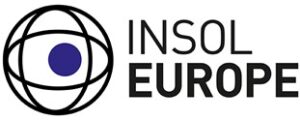
Dr Oleksiy Kononov (University of Luxembourg) published a piece in the online publication INSOL Europe’s monthly series ‘Inside Story’, entitled ‘Transposition of the Preventive Restructuring Directive into Ukrainian Law’.
On 9 November 2023, the Parliamentary Committee for Economic Development recommended the adoption of the Bill implementing the EU Preventive Restructuring Directive 2019/1023 (“Bill #10143”) at the first reading. The next day, the Cabinet of Ministers of Ukraine presented its own (alternative) bill on the same subject (“Bill #10228”). The publication briefly examines both bills, and may be read here: https://www.insol-europe.org/download/documents/2841
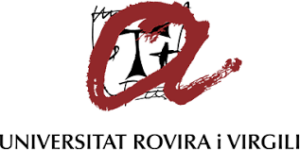
On February 28, 2024, MSCA4Ukraine fellow Dr. Oleg Skrynyk (Universitat Rovira i Virgili) organised a seminar at Ukrainian Hydrometerological Institute (UHMI) during a secondment to his home institution. Researchers from several departments of UHMI including atmosphere physics, applied meteorology and climatology, hydrochemistry etc., were present at the seminar. During a talk entitled “Uncertainty of heat wave metrics calculation (based on a case study of Ukraine)”, Dr. Skrynyk briefly introduced both the MSCA4Ukraine programme, as well as the his MSCA4Ukraine project entitled ‘Climatology and meteorological aspects of heat waves in Europe’, to the audience. Dr. Skrynyk also provided details regarding the results that his project has obtained thus far.
After the presentation and question session, there was a discussion where the experts underlined the importance of the obtained results, especially for Ukraine.
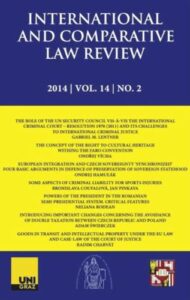
Fellow Alla Fedorova co-authored an article with Ondrej Hamulak entitled ‘Social Rights of Internally Displaced Persons in Ukraine: New Challenges in the Context of Russian Full Scale Military Aggression’, which was published in the International and Comparative Law Review, Volume 23 (2023): Issue 2 (December 2023).
The article is devoted to the analysis of main social rights of internally displaced persons and their realisation after Russia’s full-scale invasion in Ukraine. The current Ukrainian national legislation on the IDPs social protection has been analysed with the specific focus on social payments and housing through the Ukraine’s ability to guarantee all basic social rights to IDPs and via the lens of new challenges and problems that appeared after the beginning of the war. The special attention was also drawn to the importance of sufficient international support and assistance for IDPs’ social protection in Ukraine.
The article may be found in its entirety here: Social Rights of Internally Displaced Persons in Ukraine:…
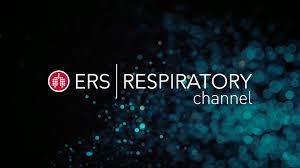
In September 2023, Dr Andrii Dudnyk, a fellow based at the Germans Trias i Pujol Research Institute in Spain, participated in a webinar entitled ‘Panel discussion: the importance of getting the dose right in anti-tuberculosis treatment’, held by the European Respiratory Society. The various topics discussed during the webinar included: why the dose matters; the main pharmacokinetic processes; site-of-disease pharmacokinetics in pulmonary TB; combination treatment and drug-drug interactions; the population approach – use of mathematical models. Participants included Dr Dudnyk (Vinnytsia, Ukraine), Pro. Dr Christoph Lange (Borstel, Germany), Prof. Dr Raquel Duarte (Porto, Portugal), Dr. Elin Svensson (Uppsala, Sweden) and Dr. Wandini Lutchman (Munich, Germany).
A recording of the webinar, as well as the slides utilised in the presentations, may be accessed here: Panel discussion: the importance of getting the dose right in anti-tuberculosis treatment – 23 NOVEMBER, 2023 – ERS Respiratory Channel
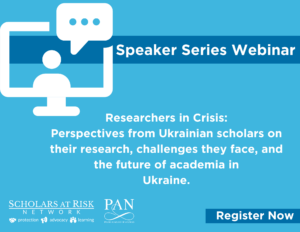
Two MSCA4Ukraine fellows spoke at the webinar titled “Researchers in Crisis: Perspectives from Ukraine“, which was held on May 15th jointly by Scholars at Risk (SAR) and the Polish Academy of Sciences. The event highlighted the research, challenges and hopes of Ukrainian scholars two years after the full-scale invasion of Ukraine. This webinar brought together four Ukrainian scholars into conversation to explore, analyse and give insight into the direct impact the full-scale invasion has had on the production of knowledge and academic freedom in Ukraine. Doctoral fellow Ross Chayka and post-doctoral fellow Associate Prof. Kateryna Latysh spoke at the event, together with researchers from Ukraine working with the Polish Academy of Sciences.
The recording of the webinar is available on SAR’s YouTube channel.
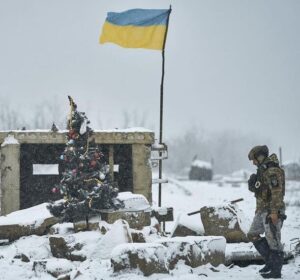
Ten Years of Russia’s war against Ukraine, a conference organised by MSCA4Ukraine fellow, Artem Nazarko, a doctoral student at the University of Bergen, took place on 20 February.
Russia has been waging war on Ukraine for a decade: annexation of Crimea, followed by the war in Eastern Ukraine since 2014, and full-scale attack all over Ukrainian territory since 24 February 2022.How has the Ukrainian society been coping with the war and what’s the key to its resilience? What are the ways to bring justice domestically and internationally, and why does it matter? Why is European cooperation so important? These are the questions that were explored in four panel debates.
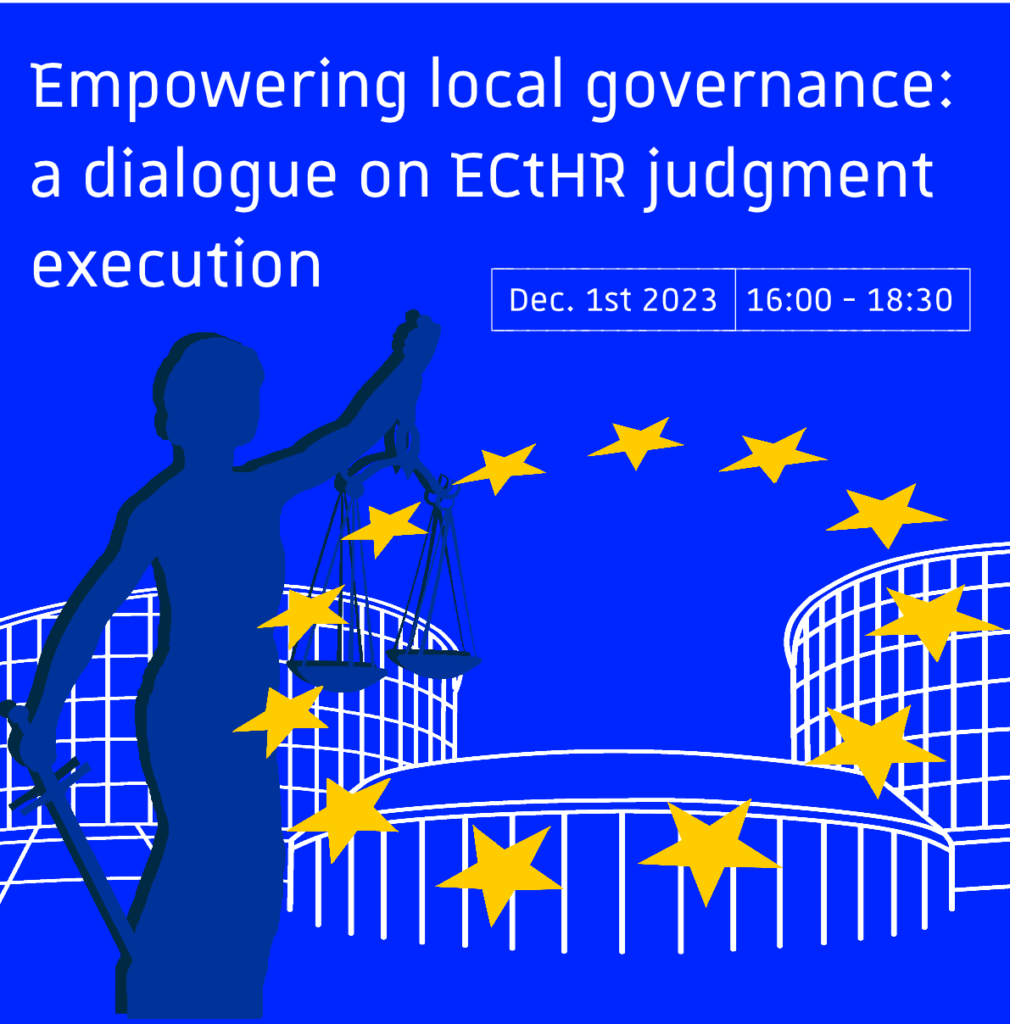
On 1st December 2023, Dr Natalia Mishyna (University of Strasbourg and Nantes University/National University ‘Odesa Academy of Law’), presented her MSCA4Ukraine research project “The role of local authorities and the implementation of the European Convention of Human Rights” at a private event in Strasbourg.
The event aimed to facilitate knowledge exchange among experts, scholars and practitioners specialising in human rights and local governance, conduct a critical evaluation of the challenges and opportunities faced by local authorities in the implementation of European Court of Human Rights (ECtHR) judgments, and provide policy insights to serve as the foundation for recommendations aimed at enhancing the effectiveness of local authorities in executing ECtHR judgments.
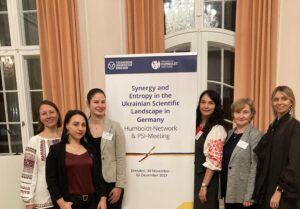
Due to the war in Ukraine, a Ukrainian academic landscape has emerged in Germany within a short period, largely supported by the Alexander von Humboldt-Foundation. To promote exchange between the researchers sponsored by the Humboldt Foundation, the Technische Universität Dresden, organised a conference ‘Synergy and Entropy in the Ukrainian Scientific Landscape in Germany’, aiming to facilitate exchange of experiences and a presentation of projects from different academic disciplines. The event took place in Dresden from 30 November- 2nd December. Eight MSCA4Ukraine fellows presented their research at the event.

On 29th November, Dr Anton Kurapov, Universität Salzburg/Taras Shevchenko National University of Kyiv, spoke at Academic Freedom-The state of a fundamental value for Europe, hosted by the Panel for the Future of Science and Technology in the European Parliament. Dr Kurapov joined SAR Europe Advocacy Manager, Denise Roche, on a panel discussing European support for Researchers at Risk.
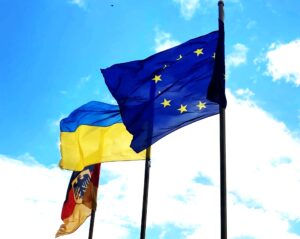
Dr Iryna Konovalova (Heinrich Heine University Düsseldorf | SSI Institute for Single Crystal National Academy of Sciences of Ukraine, Kharkiv) spoke at the Panel “Recovery of the Ukrainian education and science sector”, together with Dr.Denys Kurbatov, Deputy Minister of Education and Science, Ukraine and Prof. Dr. Oleksiy Kolezhuk, Deputy-Chair of the National Council of Ukraine for Science and Technology. This Panel was part of an event which took place on 8th November marking 30 Years of German-Ukrainian Science and Technology Cooperation.
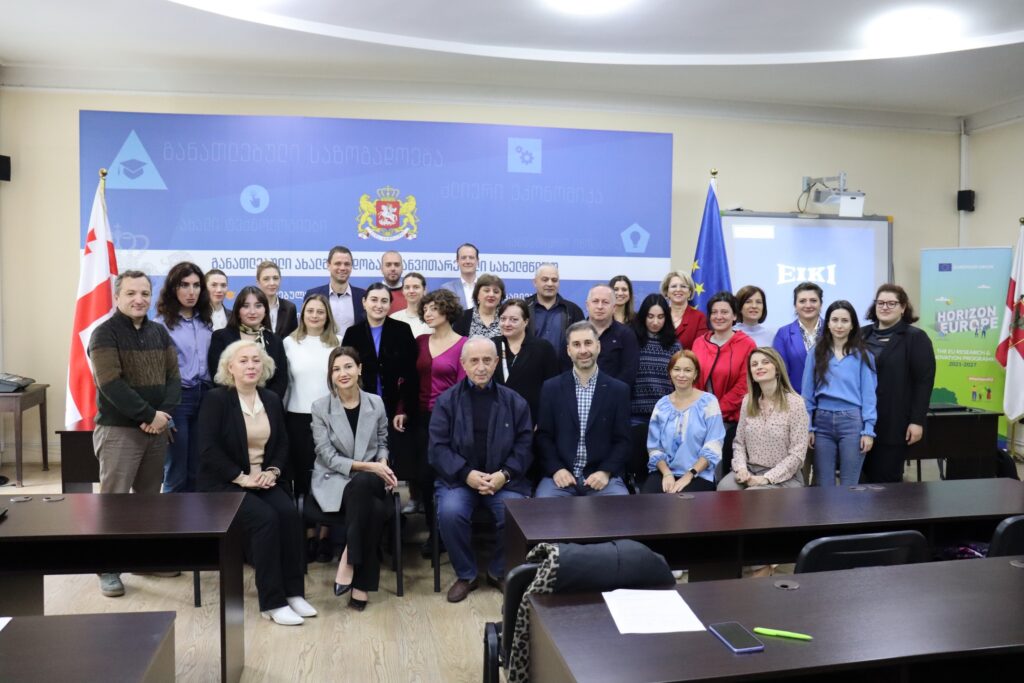
MSCA4Ukraine fellow, Dr Kateryna Ihnatenko (Ilia State University, Georgia/Luhansk Taras Shevchenko National University ) participated in and presented a project on Proposal Writing and Consultation Camp for Georgia held at Horizon Europe office in Georgia for National Contact Points, researchers, and innovators (18 October 2023, Tbilisi). In cooperation with the Horizon Europe Office as a coordinator of National Contact Points (NCPs) for Horizon Europe in Georgia, the European Commission trained researchers and innovators from the public and private sectors in Georgia in a one-week Proposal Writing Camp and individual Expert Consultations.
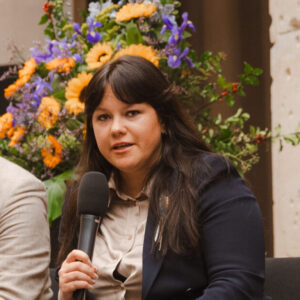
On 1st November, Dr Kateryna Latysh, University of Vilnius/Yaroslav Mudryi National Law University, spoke at the panel discussion Humboldt4Ukraine: How can science become an engine for rebuilding Ukraine? in Berlin. The panel considered the measures needed to firmly place science at the heart of Ukraine’s reconstruction efforts. The discussion followed the October virtual networking forum, Humboldt4Ukraine, which brought together researchers from over 20 countries to discuss how to best support the future of an innovative Ukraine. Read the recommendations for rebuilding Ukrainian science and academia arising from these discussions.
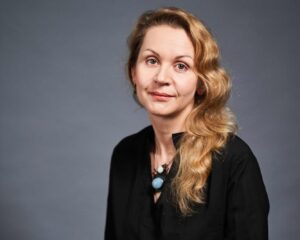
Dr Victoriia Gorbunova, Universite de Luxembourg/National Psychological Association Ukraine, was selected as a finalist from among more than 170 candidates to present her research at the MSCA Awards: Science Policy-Pitch competition on 14th and 15th November in Toledo, Spain. Through 3-minute pitches, selected candidates were invited to explain how their research contributes to strengthening the connection between science and policy-making. She was a finalist in the category of ‘Facilitating evidence-based policy making’ based on her project Five Steps to bridge the Mental Health Gap.
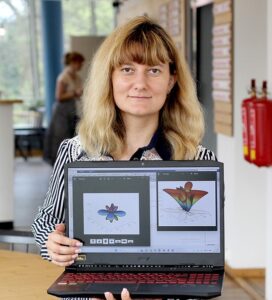
An article on the life and work of Dr Olha Mazur, a postdoctoral MSCA4Ukraine fellow, who is currently hosted at the Technical University of Liberec. Dr Mazur speaks about her beginnings in Donetsk, her research on ferroelectricity, and how the MSCA4Ukraine fellowship has helped her to embark on a new phase of life.
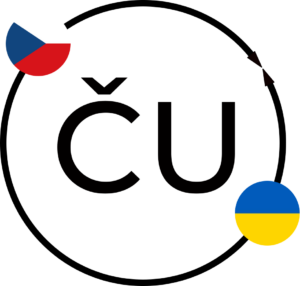
New Czech-Ukrainian Scientific Society established by MSCA4Ukraine awardees. Two MSCA4Ukraine awardees hosted in the Czech Republic are founding members of the Society which aims to unite Ukrainian scientists in the Czech Republic, coordinate and support scientific projects, centres, and initiatives and strengthen collaboration between Czech and Ukrainian scientists. The Society held its first meeting on 8th November in Prague, exploring the theme of funding opportunities in the Czech Republic. Contact the Society at [email protected] or via Facebook or Telegram.


